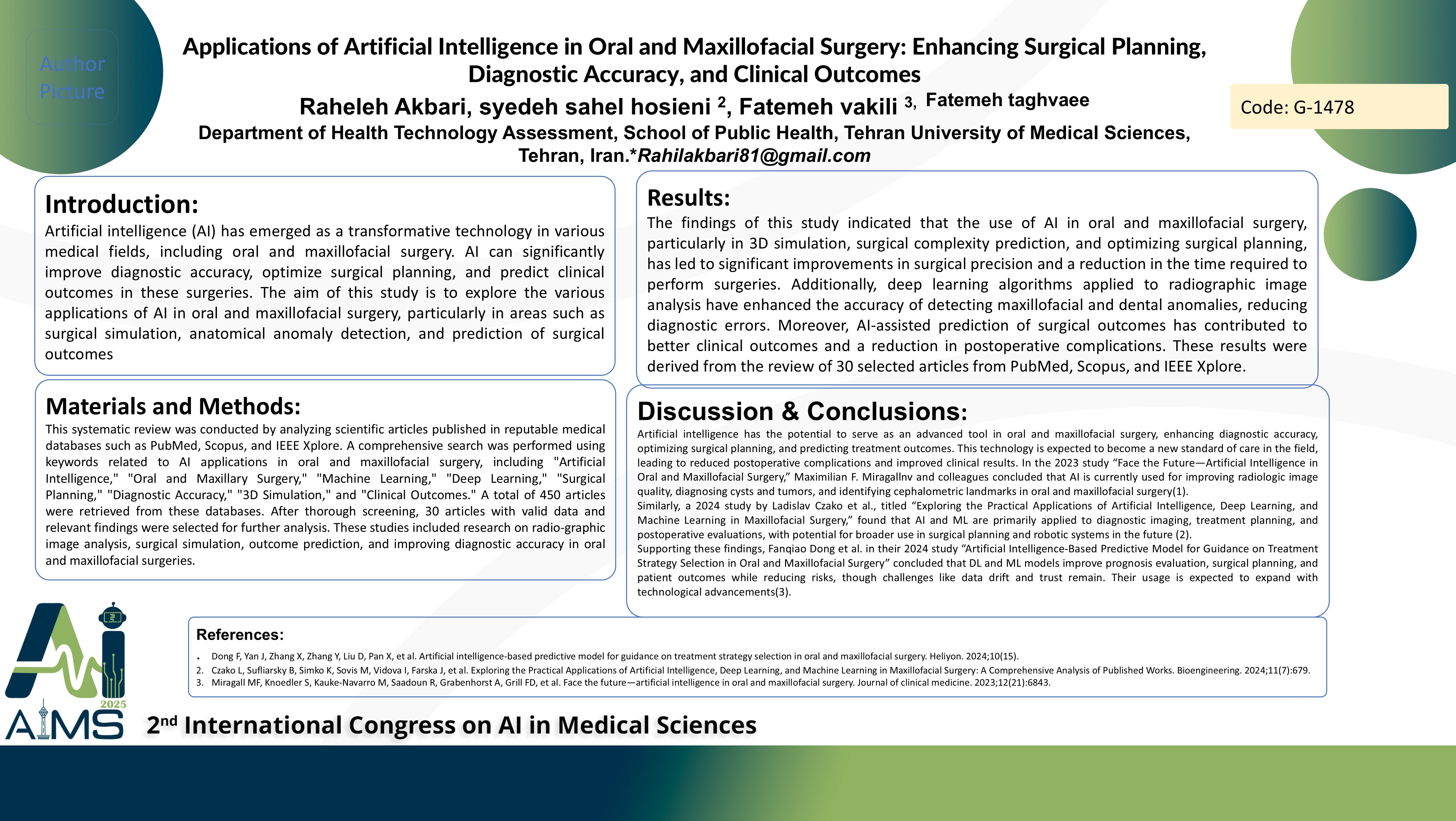Applications of Artificial Intelligence in Oral and Maxillofacial Surgery: Enhancing Surgical Planning, Diagnostic Accuracy, and Clinical Outcomes
Code: G-1478
Authors: Raheleh Akbari ℗, Seyedeh Sahel Hosseini *, FatemehVakili, FatemehTaghavi
Schedule: Not Scheduled!
Tag: Intelligent Virtual Assistant
Download: Download Poster
Abstract:
Abstract
Background and Aims: Artificial intelligence (AI) has emerged as a transformative technology in various medical fields, including oral and maxillofacial surgery. AI can significantly improve diagnostic accuracy, optimize surgical planning, and predict clinical outcomes in these surgeries. The aim of this study is to explore the various applications of AI in oral and maxillofacial surgery, particularly in areas such as surgical simulation, anatomical anomaly detection, and prediction of surgical outcomes. Methods: This systematic review was conducted by analyzing scientific articles published in reputable medical databases such as PubMed, Scopus, and IEEE Xplore. A comprehensive search was performed using keywords related to AI applications in oral and maxillofacial surgery, including "Artificial Intelligence," "Oral and Maxillary Surgery," "Machine Learning," "Deep Learning," "Surgical Planning," "Diagnostic Accuracy," "3D Simulation," and "Clinical Outcomes." A total of 450 articles were retrieved from these databases. After thorough screening, 30 articles with valid data and relevant findings were selected for further analysis. These studies included research on radio-graphic image analysis, surgical simulation, outcome prediction, and improving diagnostic accuracy in oral and maxillofacial surgeries. Results: The findings of this study indicated that the use of AI in oral and maxillofacial surgery, particularly in 3D simulation, surgical complexity prediction, and optimizing surgical planning, has led to significant improvements in surgical precision and a reduction in the time required to perform surgeries. Additionally, deep learning algorithms applied to radiographic image analysis have enhanced the accuracy of detecting maxillofacial and dental anomalies, reducing diagnostic errors. Moreover, AI-assisted prediction of surgical outcomes has contributed to better clinical outcomes and a reduction in postoperative complications. These results were derived from the review of 30 selected articles from PubMed, Scopus, and IEEE Xplore. Conclusion: Artificial intelligence has the potential to serve as an advanced tool in oral and maxillofacial surgery, enhancing diagnostic accuracy, optimizing surgical planning, and predicting treatment outcomes. This technology is expected to become a new standard of care in the field, leading to reduced postoperative complications and improved clinical results.
Keywords
Artificial Intelligence, Maxillary Surgery, Machine Learning
